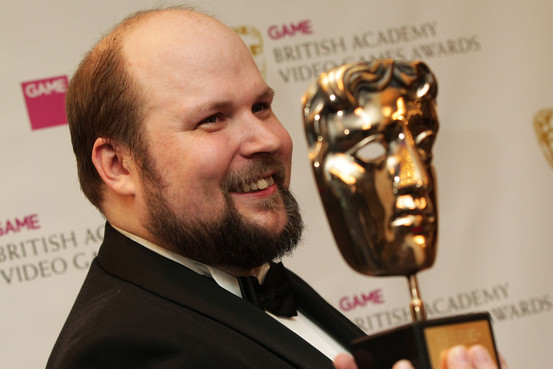
Stockholm: By negotiating to sell his gaming startup to Microsoft, Minecraft creator Markus Persson is growing closer to a company he once publicly lambasted — and has a chance of becoming a billionaire at the age of 35.
The Swede, who’s gained 1.8 million Twitter followers and the admiration of gamers worldwide after creating Minecraft in 2009, has used his fame to pour scorn on companies from Facebook to Electronic Arts while touting the values of being “indie.” Microsoft, a $385 billion giant dominating the global software industry, has received its fair share of Persson’s appraisal of large corporations.
“Got an email from microsoft, wanting to help ‘certify’ minecraft for win 8,” Persson wrote on Twitter in September 2012, referring to Microsoft’s Windows 8 software. “I told them to stop trying to ruin the pc as an open platform.”
“I’d rather have minecraft not run on win 8 at all than to play along,” Persson, known for his black hat and dubbed “Notch” by the Minecraft community, posted that same day.
Persson’s comments about Microsoft have become less harsh since, and a sale to the Redmond, Washington-based company would cement a relationship that’s been strengthening recently. Microsoft, maker of the Xbox video-game console, is in talks to buy Persson’s company, Mojang, for more than $2 billion, people with knowledge of the talks said.
Persson controls about 71 per cent of Mojang, according to the annual reports of the Stockholm-based game maker and Persson’s holding company Notch Enterprises. That suggests his share of proceeds of $2 billion would be about $1.4 billion. He’s also collected more than $100 million in dividends since 2011, which would give him a total net worth of $1.5 billion, according to the Bloomberg Billionaires Index.
Minecraft, which is a bit like playing Lego in a vast, virtual landscape, got its start as a project Persson worked on during evenings when he came home from his day job at Midasplayer making games for King.com. Downloads begun soaring soon after release, and the title won recognition including the grand prize from the Independent Games Festival in 2011.
Though Minecraft was initially sold only through Persson’s website, he later made it available at Web-app stores and for consoles such as PlayStation 3, for which it was the No. 2 best- selling game by physical retail copies sold in July. Minecraft was made available for the newest Xbox generation, Xbox One, this month.
Persson started programming as a child, according to the 2013 book “Minecraft: The Unlikely Tale of Markus ‘Notch’ Persson and the Game That Changed Everything” by Linus Larsson.
In high school, according to the book, Persson signed up for a programming course. During the first lesson, Persson ignored the teacher’s instructions and instead created his own version of the game Pong. After realising how skilled Persson was, the teacher suggested he skip the rest of the classes and just take the final exam. Persson got an A.
As Mojang grew, Persson continued to promote “indie” game-maker values, including open-source standards and criticising companies having too much access to users. On Twitter, he accused Redwood City, California-based Electronic Arts, maker of the FIFA soccer and Titanfall video games, of not supporting smaller publishers.
This year, he slammed Facebook, tweeting that the “things they can do to your phone is creepy, so I’m switching to web.” In March, he said he cancelled a deal to bring Minecraft to the Oculus virtual-reality headset after Facebook agreed to buy its manufacturer, because Facebook “creeps me out.” Last month, he said he’s “officially over being upset about Facebook buying Oculus.”
Emails to Persson and Mojang weren’t returned. Vice President Jonas Maartensson declined to comment Wednesday to a Bloomberg reporter at Mojang’s headquarters, in a yellow stone building on a quiet street in the Soedermalm district in southern Stockholm. The sound of pool being played could be heard, as developers worked behind rows of computers.
A deal with Microsoft began to take shape after Persson reached out to the software maker a few months ago, based on a positive working relationship on Minecraft for Xbox, said a person familiar with the matter.
The two companies quickly agreed on a framework and approximate price and have been working out the details since, the person said. Persson will help out with the transition, though he is unlikely to remain beyond that, according to the person. Persson handed over the main Minecraft developer duties to colleague Jens Bergensten in 2012 to focus on other projects.
Minecraft is a pixelated online world where users build structures, including replicas of actual cities and buildings, and face few rules or restrictions. One aim is to avoid being eaten by monsters that come out after dark. Enthusiasts host conventions and contests to reward the most spectacular constructions.
“Minecraft is an alien in the video-game landscape,” said Laurent Michaud, an analyst for consumer electronics and digital entertainment at researcher Digiworld Idate. “The game boasts pixel graphics and basic development, while everyone else is talking ultra-high-definition and spending tens of millions to develop. It struck a chord where no one expected.”
The game’s popularity — it had sold more than 54 million copies as of June — has challenged Mojang’s status as a small, independent game studio. Sales jumped 38 per cent to 2.07 billion kronor ($292 million) last year and profit rose to 896 million kronor. Mojang also pays Persson’s holding company license fees to use the Minecraft brand. Mojang had 35 employees last year, documents showed.
Two years ago, when answering questions on Reddit, Persson said Mojang’s long-term goal was to “stay indie, make fun games that we like playing.”
Washington Post










